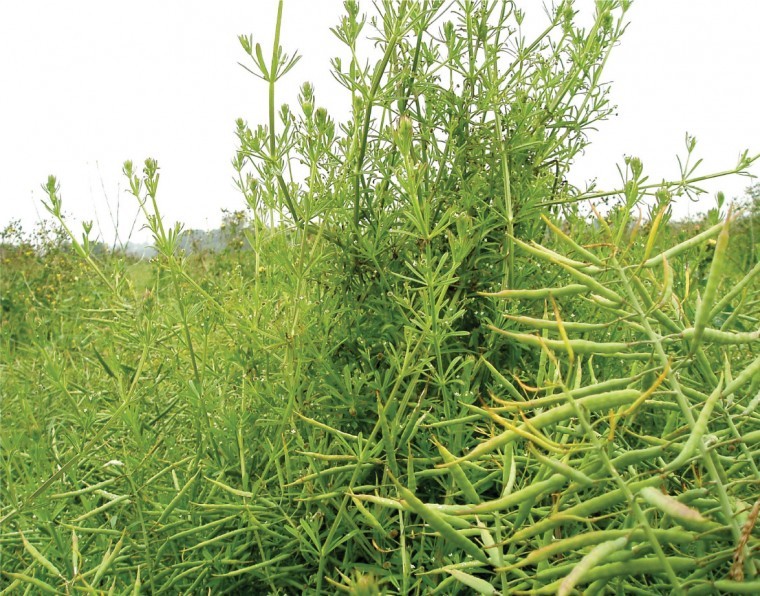Reports of cleavers coming through early autumn herbicide applications plus the likelihood of thistles and mayweeds add up to a need for a targeted post-emergence herbicide to tidy crops up and avoid problems at harvest. These problem weeds compete directly and smother the crop, making harvest physically more difficult, and increasing the risk of weed seed contamination leading to unwanted admix penalties. Just remember the problems last year, says Dow. Galera (clopyralid and picloram) is the spring-applied herbicide for winter oilseed rape with a weed spectrum including cleavers, mayweeds, creeping thistles and sow-thistle.
“Galera can be applied from 1 March up to until before flower buds are visible above the crop canopy, so you need to get ready! We advise farmers to order sufficient Galera to cover those difficult fields infested with cleavers already,” advises Peter Waite of Dow AgroSciences.
“This year the Galera spray window may be longer than normal as crops are not so advanced as in the past and most have only just received their fertiliser. Every year some fields will have cleavers, sow-thistles, mayweeds and creeping thistles that need tackling in the spring. Most advisors know from their experience and from farm history which fields these are likely to be. So if you haven’t got Galera in store yet, then you need to get sufficient product in now to treat these problem fields. You must be ready and waiting for both weeds and crops to grow away, as the weather warms up.”
“Applied at 0.35 l/ha, Galera will give excellent control of mayweeds, creeping thistles and sow-thistles – and good control of cleavers. To get the best results on cleavers, conditions need to be warm before and after application and the weed less than 150 mm in size. In order to optimise performance on cleavers, stable air temperatures of at least 6ºC and rising are needed. The warmer and the more stable conditions are, the better the results. You may need to act quickly to purchase the herbicide you require now.”
“Groundsel is also well controlled up to the 6 leaf stage. If there are no cleavers, but there are sow-thistles, thistles and mayweed, all of which cause delays and costly problems at harvest, Dow Shield 400 can be used and will do a great job,” he says.
Quite understandably farmers worry about seed return due to cleavers. These weeds are the most aggressive and competitive of weeds, impacting yield and decreasing the percentage oil content. They contaminate seed, increasing the risk of admixture and can reduce the price/tonne. “Farmers do not want this,” says Mr Waite. As well as being visible at harvest, cleavers make harvesting more difficult and costly. Controlling difficult high biomass weeds will minimise seed return across the crop rotation, helping to reduce the seed burden and reduce herbicide spend in other crops in the rotation.”
Peter explains that Galera was re-registered two years ago, overcoming many challenging registration hurdles and thankfully it will be available to growers for many more years to come as a consequence. “Plan rotations carefully, keep farm records and always read the label,” he says.
Peter Waite reminds growers to keep pesticides well away from water courses. “Extra care must be taken when spraying to avoid any contamination of water courses.”
Pictured: Cleavers causing problems at harvest




